
Spinning is key for line-dancing electrons in iron selenide
Quantum physicists at Rice have helped answer an important question at the forefront of research into superconductivity.

Spinning is key for line-dancing electrons in iron selenide
Quantum physicists at Rice have helped answer an important question at the forefront of research into superconductivity.

Rice chemists skew the odds to prevent cancer
A theoretical framework by Rice University scientists shows how to increase the odds of identifying cancer-causing mutations before tumors take hold. They demonstrate that only a few energetically favorable pathways are likely to lead to cancer.

Computational sleuthing confirms first 3D quantum spin liquid
Physicists have confirmed the first 3D quantum spin liquid, a solid material with a liquidlike magnetic state.

May 15 lunar eclipse promises outstanding views
Rice’s campus observatory will host a public viewing May 15 for a well-timed total lunar eclipse.
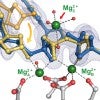
Crystal study may resolve DNA mystery
Rice University bioscientists have uncovered a tiny detail that could help understand how DNA replicates with such astounding accuracy.

Graduate student gets call to Brookhaven
Graduate student Dale Lowder has been selected by the Department of Energy to work and study at Brookhaven National Laboratory this fall.
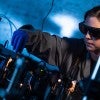
Rice ‘metalens’ could disrupt vacuum UV market
Rice photonics researchers have created a potentially disruptive technology for the ultraviolet optics market.

Houston birdwatcher turned to listening in the pandemic
A Rice geologist’s birding hobby branched out into citizen science during the pandemic.

Rice biologist wins NIH early career award
Durre Muhammad, a Rice Academy postdoctoral fellow, has won a prestigious NIH award to pursue her research plant biology.

Rice University geobiologist tapped for Antarctic drilling mission
Rice geobiologist Jeanine Ash is participating in an Antarctic mission that’s studying climate change.

NSF awards 38 Graduate Research Fellowships to Rice students
The National Science Foundation has awarded 38 Graduate Research Fellowships to Rice University students.
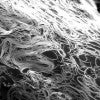
Rice scientists have developed an acid-based solvent that simplifies carbon nanotube processing.

A new view for science and engineering
Luay Nakhleh, the William and Stephanie Sick Dean of the George R. Brown School of Engineering, toured the construction site of the new Engineering and Science Building on April 5.
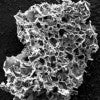
Treated plastic waste good at grabbing carbon dioxide
Rice University chemists treat waste plastic to absorb carbon dioxide from flue gas streams more efficiently than current processes.
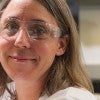
Living sensor research wins federal backing
Rice researchers are leading a federally funded project to improve communications between microelectronics and microorganisms.